Hey food lovers! Ready to discover some interesting and delicious foods that start with the letter I? From classic Indian dishes like Idli to Korean treats like Injeolmi rice cakes, this list is packed with flavor, variety, and global inspiration.
Whether you’re looking for new ingredients, international dishes, or unique snacks, this A-to-Z style guide features 100 food names starting with “I” – including well-known meals and hidden gems you might not have heard of before.
So, grab a snack and let’s dive into this mouthwatering journey. Don’t forget to drop a comment and tell us which “I” food is your favorite!
.
1. Ice cream

2. Ice cream cake

3. Ice cream sandwich

4. Ice plant (vegetable)

5. Ice pops

6. Ice wine

7. Iceberg lettuce

8. Iceberg slaw
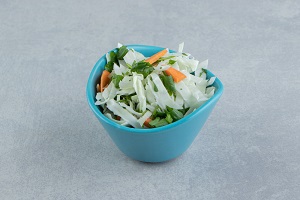
9. Icebox cake

10. Iced bun

11. Iced buns

12. Iced coffee

13. Iced doughnut

14. Iced lattes

15. Iced mocha

16. Iced tea

17. Iced vovo (Australian biscuit)
18. Ichiban dashi (Japanese soup stock)
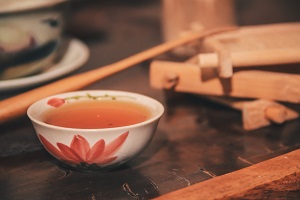
Ichiban dashi is a type of Japanese soup stock made from kombu (dried seaweed) and katsuobushi (dried, fermented bonito flakes). It’s the first and most delicate stock made in the dashi preparation process, often used as a base for many traditional Japanese dishes like miso soup, sauces, and noodles.
People love ichiban dashi for its umami-rich flavor, which is savory, clean, and not overly salty. The combination of seaweed and bonito flakes provides a subtle yet deep taste that enhances the flavors of the dishes it’s used in. It’s a key ingredient in authentic Japanese cooking and is loved for its simplicity and ability to bring dishes to life.
19. Ichigo daifuku (strawberry rice cake)

20. Icicle radish
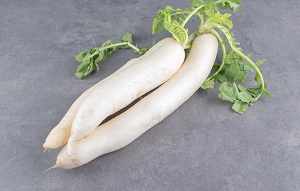
21. Icing

22. Icy pole (Australian ice pop)

23. Idiyappam (rice noodles)
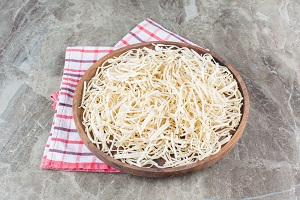
24. Idli (South Indian rice cake)
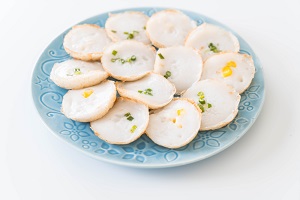
Idli is a popular South Indian dish made from fermented rice and urad dal (split black lentils). The batter is steamed in small, round molds, creating soft, fluffy rice cakes. Idli is typically served with sambar (a spicy lentil soup) and coconut chutney.
People love idli for its light, easy-to-digest texture and mild flavor. It’s commonly eaten for breakfast or as a snack in South India and around the world. Idli is a healthy, low-calorie food that’s full of protein and fiber, making it a great choice for a balanced meal. The fermentation process also adds beneficial probiotics, aiding digestion.
25. Idli podi (spice mix)
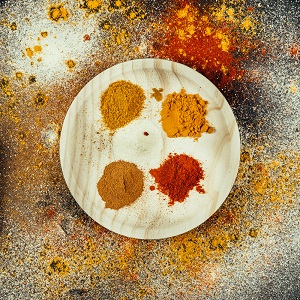
26. Igname (a type of yam)
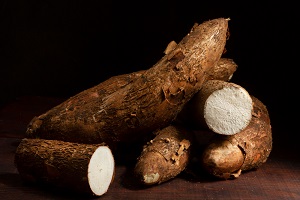
27. Ika mata (raw fish)
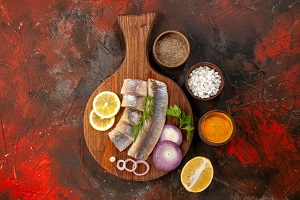
Ika mata is a traditional Polynesian dish made with raw fish, usually tuna or squid, that’s marinated in a mixture of citrus juice (often lime or lemon), coconut milk, and seasonings. The fish is typically cut into small pieces and served fresh, often accompanied by onions, tomatoes, and coriander.
People love ika mata for its refreshing and flavorful taste, with the citrus providing a tangy kick and the coconut milk adding richness. It’s a popular dish in Fiji and other Pacific Islands and is often enjoyed as an appetizer or light meal. The raw fish is marinated to “cook” it in the acidity of the citrus, giving it a delicate, melt-in-your-mouth texture.
28. Ikan bakar (grilled fish)
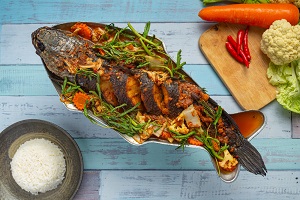
29. Ikan bilis (dried anchovies)
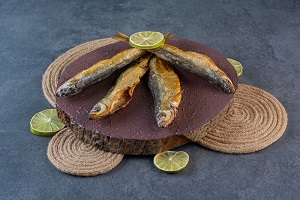
30. Ikizukuri (live sashimi)

Ikizukuri is a Japanese dish that involves serving live sashimi, where the fish is prepared while still alive, often in front of the diner. The fish, typically sea bass, flounder, or octopus, is carefully filleted and served immediately after being sliced, sometimes still moving, offering an incredibly fresh experience. The dish is typically accompanied by soy sauce, wasabi, and pickled ginger.
People love ikizukuri for its extreme freshness and the dramatic presentation, which showcases the skill of the chef. The concept behind the dish is that the fish is at its peak of flavor and texture when served this fresh. While it’s not for everyone due to its controversial preparation, it remains a specialty in some high-end sushi restaurants in Japan.
31. Ikura (salmon roe)
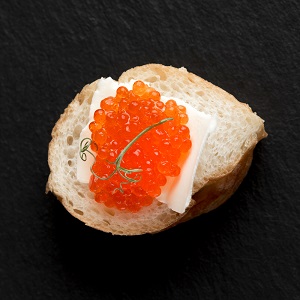
Ikura refers to salmon roe – the large, orange, egg sacs of the salmon fish. These eggs are typically served as sushi, on rice, or as a topping for other dishes like donburi (rice bowls). Ikura has a slightly salty, rich flavor with a burst of umami when bitten into.
People love ikura for its delicate texture and briny flavor. The roe’s vibrant color and pop make it a visually appealing and delicious addition to many Japanese dishes. It’s often enjoyed in sushi rolls, sashimi, or as a garnish for soups and salads, offering both a luxurious taste and an elegant look.
32. Ilama (a tropical fruit)
33. Ile flottante (floating islands dessert)

34. Iles flottantes

35. Imam bayildi (stuffed eggplant)
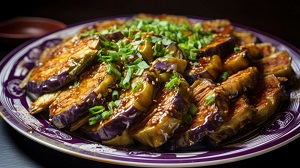
36. Imarti (Indian sweet)
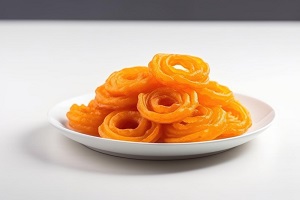
37. Imitation crab

38. Imperial mandarin

39. Imperial rolls

40. Impossible burger (plant-based meat)

41. Inarizushi (sushi in tofu pockets)
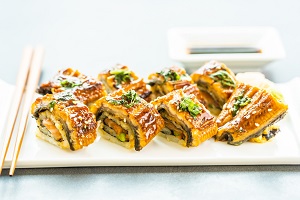
Inarizushi is a type of Japanese sushi made by stuffing sweet, marinated tofu pockets (called aburaage) with vinegared rice. The tofu pockets are simmered in a mixture of soy sauce, sugar, and mirin, giving them a slightly sweet and savory flavor. The rice is usually plain or lightly seasoned, and sometimes garnished with sesame seeds or pickled vegetables.
People love inarizushi for its sweet and savory balance, with the tofu providing a slightly chewy, flavorful exterior that complements the soft, tangy rice inside. It’s a convenient, easy-to-eat dish that is often enjoyed as a snack, lunch, or part of a bento box. Inarizushi is also popular in picnics or festival food in Japan, known for its simplicity and satisfying taste.
42. Inca berries
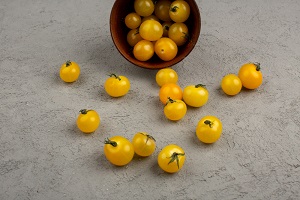
Inca berries, also known as goldenberries or Physalis peruviana, are small, round, bright yellow-orange fruits that are wrapped in a papery husk. Native to South America, these berries have a tangy-sweet flavor, similar to a mix of pineapple and tomato.
People love Inca berries for their unique taste and health benefits. They are rich in vitamins, antioxidants, and fiber, making them a great addition to a healthy diet. Inca berries can be eaten fresh, dried, or added to smoothies, salads, and baked goods. Their tartness makes them a popular choice for snacks or a flavorful topping for dishes like yogurt and cereal.
43. Incaberries
44. Indian curry
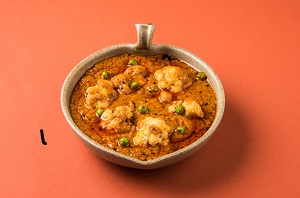
45. Indian fig
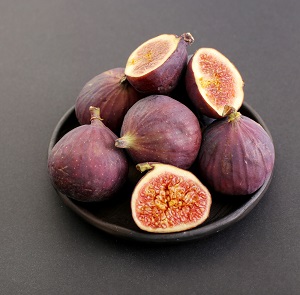
46. Indian mango
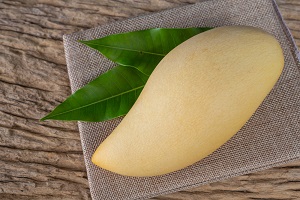
47. Indian paneer

48. Indomie (brand of instant noodles)
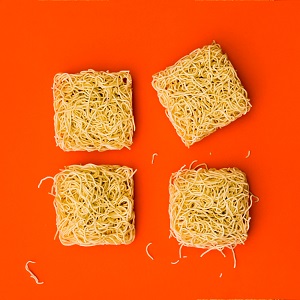
49. Indonesian fried rice
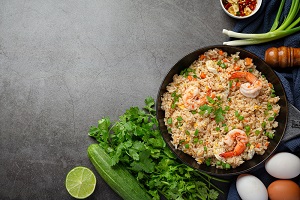
50. Inihaw (Filipino BBQ)
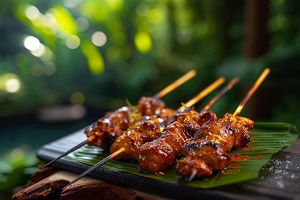
Inihaw is a popular Filipino BBQ that involves grilling meats, such as chicken, pork, or fish, over an open flame. The meat is usually marinated in a mixture of soy sauce, vinegar, garlic, sugar, and spices, giving it a savory, slightly tangy, and sweet flavor. It’s commonly served with a side of rice and dipping sauces like spicy vinegar or soy sauce.
People love inihaw for its smoky, charred flavor and the rich, tender texture of the grilled meat. It’s a favorite dish at Filipino gatherings, picnics, and festivals, often enjoyed with family and friends. Inihaw reflects the Filipino love for communal eating and flavorful, grilled dishes that bring people together.
51. Injeolmi (Korean rice cake)

52. Injera (Ethiopian flatbread)
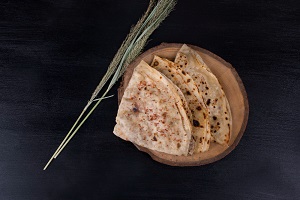
Injera is a traditional Ethiopian flatbread made from teff flour, giving it a slightly sour taste due to the fermentation process. It has a spongy texture with a unique, slightly chewy consistency and is typically served as a base for a variety of Ethiopian stews and dishes. The bread is typically torn into pieces and used to scoop up the stews, like doro wat (chicken stew) or shiro (chickpea stew).
People love injera for its tangy flavor and versatility in Ethiopian cuisine. It’s not only a staple in many Ethiopian meals but also serves as the utensil, making it a fun and interactive way to eat. Injera is rich in fiber and protein, making it a nutritious and satisfying addition to any meal.
53. Injera bread
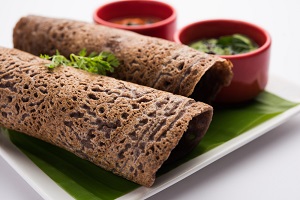
54. Ink squid pasta
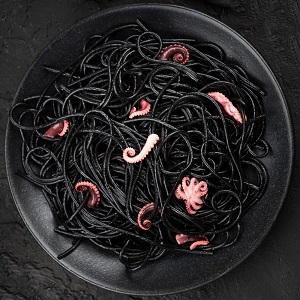 \
\NK squid pasta is a dish that combines squid (often calamari) with pasta in a flavorful sauce. The squid is typically cooked until tender, then mixed with pasta, like spaghetti or linguine, and often tossed in a rich, garlic, tomato, and olive oil sauce. Sometimes, it may be enhanced with spices or fresh herbs like parsley or chili flakes for an extra kick.
People love NK squid pasta for its fresh seafood flavor and the satisfying combination of tender squid and pasta. It’s a light yet flavorful dish, perfect for seafood lovers looking for a delicious, easy-to-make meal. The mix of savory sauce and the natural sweetness of the squid creates a wonderful balance of flavors.
55. Instant coffee

56. Instant mashed potatoes
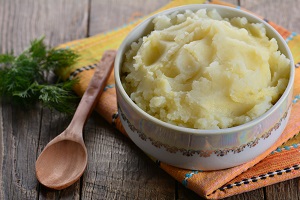
57. Instant noodles
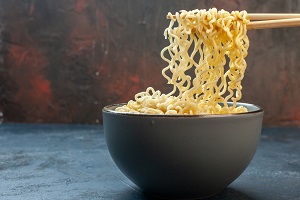
58. Instant oatmeal
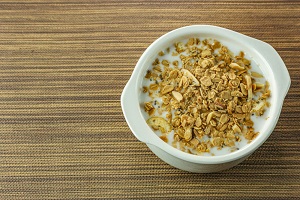
59. Instant pudding

60. Instant ramen
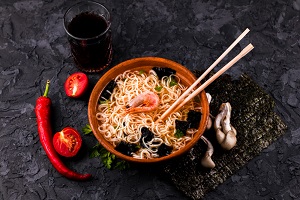
61. Intermezzo (palate cleanser)
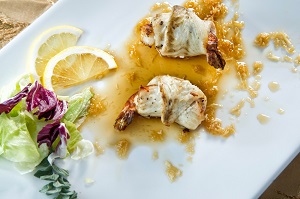
62. Irish bacon

Irish bacon, also known as back bacon, is a type of cured pork that comes from the loin and belly of the pig. It is similar to Canadian bacon but has a slightly fattier and leaner texture compared to regular bacon. It’s typically salted, cured, and sometimes smoked, giving it a rich, savory flavor. Irish bacon is commonly served as part of a traditional Irish breakfast alongside eggs, sausages, and black pudding.
People love Irish bacon for its mild flavor and tender texture. It’s less crispy than American bacon but still offers a satisfying, meaty bite. Irish bacon is a hearty addition to breakfast, sandwiches, or can be cooked into stews and soups, adding depth and richness to the dish.

2. Ice cream cake

3. Ice cream sandwich

4. Ice plant (vegetable)

5. Ice pops

6. Ice wine

7. Iceberg lettuce

8. Iceberg slaw

9. Icebox cake

10. Iced bun

11. Iced buns

12. Iced coffee

13. Iced doughnut

14. Iced lattes

15. Iced mocha

16. Iced tea

17. Iced vovo (Australian biscuit)
18. Ichiban dashi (Japanese soup stock)

Ichiban dashi is a type of Japanese soup stock made from kombu (dried seaweed) and katsuobushi (dried, fermented bonito flakes). It’s the first and most delicate stock made in the dashi preparation process, often used as a base for many traditional Japanese dishes like miso soup, sauces, and noodles.
People love ichiban dashi for its umami-rich flavor, which is savory, clean, and not overly salty. The combination of seaweed and bonito flakes provides a subtle yet deep taste that enhances the flavors of the dishes it’s used in. It’s a key ingredient in authentic Japanese cooking and is loved for its simplicity and ability to bring dishes to life.
19. Ichigo daifuku (strawberry rice cake)

20. Icicle radish

21. Icing

22. Icy pole (Australian ice pop)

23. Idiyappam (rice noodles)

24. Idli (South Indian rice cake)

Idli is a popular South Indian dish made from fermented rice and urad dal (split black lentils). The batter is steamed in small, round molds, creating soft, fluffy rice cakes. Idli is typically served with sambar (a spicy lentil soup) and coconut chutney.
People love idli for its light, easy-to-digest texture and mild flavor. It’s commonly eaten for breakfast or as a snack in South India and around the world. Idli is a healthy, low-calorie food that’s full of protein and fiber, making it a great choice for a balanced meal. The fermentation process also adds beneficial probiotics, aiding digestion.
25. Idli podi (spice mix)

26. Igname (a type of yam)

27. Ika mata (raw fish)

Ika mata is a traditional Polynesian dish made with raw fish, usually tuna or squid, that’s marinated in a mixture of citrus juice (often lime or lemon), coconut milk, and seasonings. The fish is typically cut into small pieces and served fresh, often accompanied by onions, tomatoes, and coriander.
People love ika mata for its refreshing and flavorful taste, with the citrus providing a tangy kick and the coconut milk adding richness. It’s a popular dish in Fiji and other Pacific Islands and is often enjoyed as an appetizer or light meal. The raw fish is marinated to “cook” it in the acidity of the citrus, giving it a delicate, melt-in-your-mouth texture.
28. Ikan bakar (grilled fish)

29. Ikan bilis (dried anchovies)

30. Ikizukuri (live sashimi)

Ikizukuri is a Japanese dish that involves serving live sashimi, where the fish is prepared while still alive, often in front of the diner. The fish, typically sea bass, flounder, or octopus, is carefully filleted and served immediately after being sliced, sometimes still moving, offering an incredibly fresh experience. The dish is typically accompanied by soy sauce, wasabi, and pickled ginger.
People love ikizukuri for its extreme freshness and the dramatic presentation, which showcases the skill of the chef. The concept behind the dish is that the fish is at its peak of flavor and texture when served this fresh. While it’s not for everyone due to its controversial preparation, it remains a specialty in some high-end sushi restaurants in Japan.
31. Ikura (salmon roe)

Ikura refers to salmon roe – the large, orange, egg sacs of the salmon fish. These eggs are typically served as sushi, on rice, or as a topping for other dishes like donburi (rice bowls). Ikura has a slightly salty, rich flavor with a burst of umami when bitten into.
People love ikura for its delicate texture and briny flavor. The roe’s vibrant color and pop make it a visually appealing and delicious addition to many Japanese dishes. It’s often enjoyed in sushi rolls, sashimi, or as a garnish for soups and salads, offering both a luxurious taste and an elegant look.
32. Ilama (a tropical fruit)
33. Ile flottante (floating islands dessert)

34. Iles flottantes

35. Imam bayildi (stuffed eggplant)

36. Imarti (Indian sweet)

37. Imitation crab

38. Imperial mandarin

39. Imperial rolls

40. Impossible burger (plant-based meat)

41. Inarizushi (sushi in tofu pockets)

Inarizushi is a type of Japanese sushi made by stuffing sweet, marinated tofu pockets (called aburaage) with vinegared rice. The tofu pockets are simmered in a mixture of soy sauce, sugar, and mirin, giving them a slightly sweet and savory flavor. The rice is usually plain or lightly seasoned, and sometimes garnished with sesame seeds or pickled vegetables.
People love inarizushi for its sweet and savory balance, with the tofu providing a slightly chewy, flavorful exterior that complements the soft, tangy rice inside. It’s a convenient, easy-to-eat dish that is often enjoyed as a snack, lunch, or part of a bento box. Inarizushi is also popular in picnics or festival food in Japan, known for its simplicity and satisfying taste.
42. Inca berries

Inca berries, also known as goldenberries or Physalis peruviana, are small, round, bright yellow-orange fruits that are wrapped in a papery husk. Native to South America, these berries have a tangy-sweet flavor, similar to a mix of pineapple and tomato.
People love Inca berries for their unique taste and health benefits. They are rich in vitamins, antioxidants, and fiber, making them a great addition to a healthy diet. Inca berries can be eaten fresh, dried, or added to smoothies, salads, and baked goods. Their tartness makes them a popular choice for snacks or a flavorful topping for dishes like yogurt and cereal.
43. Incaberries
44. Indian curry

45. Indian fig

46. Indian mango

47. Indian paneer

48. Indomie (brand of instant noodles)

49. Indonesian fried rice

50. Inihaw (Filipino BBQ)

Inihaw is a popular Filipino BBQ that involves grilling meats, such as chicken, pork, or fish, over an open flame. The meat is usually marinated in a mixture of soy sauce, vinegar, garlic, sugar, and spices, giving it a savory, slightly tangy, and sweet flavor. It’s commonly served with a side of rice and dipping sauces like spicy vinegar or soy sauce.
People love inihaw for its smoky, charred flavor and the rich, tender texture of the grilled meat. It’s a favorite dish at Filipino gatherings, picnics, and festivals, often enjoyed with family and friends. Inihaw reflects the Filipino love for communal eating and flavorful, grilled dishes that bring people together.
51. Injeolmi (Korean rice cake)

52. Injera (Ethiopian flatbread)

Injera is a traditional Ethiopian flatbread made from teff flour, giving it a slightly sour taste due to the fermentation process. It has a spongy texture with a unique, slightly chewy consistency and is typically served as a base for a variety of Ethiopian stews and dishes. The bread is typically torn into pieces and used to scoop up the stews, like doro wat (chicken stew) or shiro (chickpea stew).
People love injera for its tangy flavor and versatility in Ethiopian cuisine. It’s not only a staple in many Ethiopian meals but also serves as the utensil, making it a fun and interactive way to eat. Injera is rich in fiber and protein, making it a nutritious and satisfying addition to any meal.
53. Injera bread

54. Ink squid pasta
 \
\NK squid pasta is a dish that combines squid (often calamari) with pasta in a flavorful sauce. The squid is typically cooked until tender, then mixed with pasta, like spaghetti or linguine, and often tossed in a rich, garlic, tomato, and olive oil sauce. Sometimes, it may be enhanced with spices or fresh herbs like parsley or chili flakes for an extra kick.
People love NK squid pasta for its fresh seafood flavor and the satisfying combination of tender squid and pasta. It’s a light yet flavorful dish, perfect for seafood lovers looking for a delicious, easy-to-make meal. The mix of savory sauce and the natural sweetness of the squid creates a wonderful balance of flavors.
55. Instant coffee

56. Instant mashed potatoes

57. Instant noodles

58. Instant oatmeal

59. Instant pudding

60. Instant ramen

61. Intermezzo (palate cleanser)

62. Irish bacon

63. Irish butter
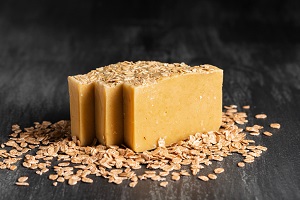
64. Irish coffee

65. Irish cream

66. Irish lamb stew
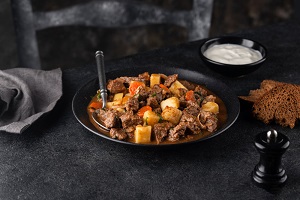
67. Irish moss

68. Irish oatmeal
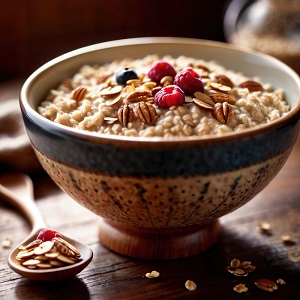
69. Irish soda bread
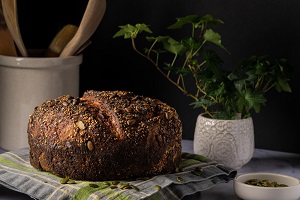
70. Irish stew

71. Irish whiskey

72. Iron-fortified cereals

73. Ironweed (edible in some cultures)

74. Isaw (Filipino street food)
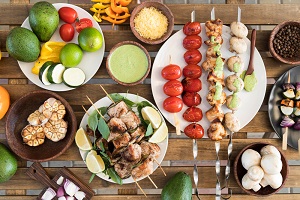
75. Iskender kebab

76. Israeli chocolate

77. Israeli couscous
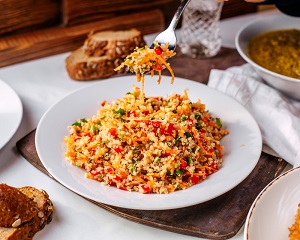
78. Israeli orange

79. Israeli salad

80. Itak (Filipino fish)
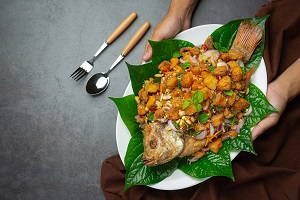
81. Italian beef

82. Italian biscotti
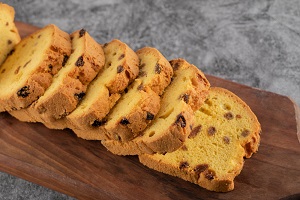
83. Italian bread
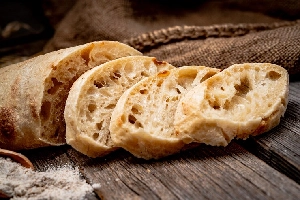
84. Italian cheese

85. Italian dressing
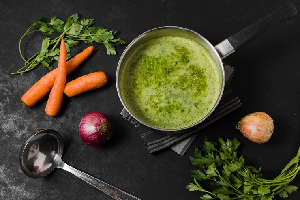
86. Italian herbs

87. Italian meatballs

88. Italian plum
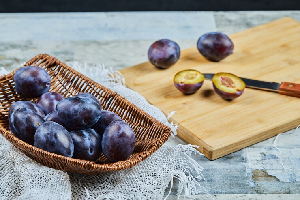
89. Italian polenta

90. Italian sausage

91. Italian sorbetto

92. Italian sub

93. Italian truffle
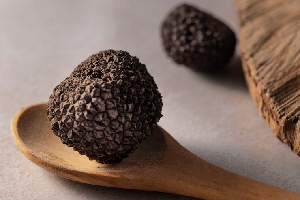
94. Italian wedding soup

95. Itlog na maalat (salted eggs)

96. Itoen green tea

97. Ivar (a type of fish)

98. Iwashi (sardines)

99. Izgara köfte (Turkish meatballs)

100. Izzio bread
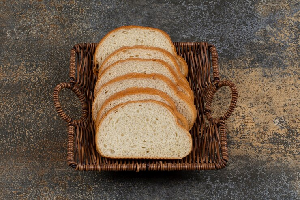
63. Irish butter

64. Irish coffee

65. Irish cream

66. Irish lamb stew

67. Irish moss

68. Irish oatmeal

69. Irish soda bread

70. Irish stew

71. Irish whiskey

72. Iron-fortified cereals

73. Ironweed (edible in some cultures)

74. Isaw (Filipino street food)

75. Iskender kebab

76. Israeli chocolate

77. Israeli couscous

78. Israeli orange

79. Israeli salad

80. Itak (Filipino fish)

81. Italian beef

82. Italian biscotti

83. Italian bread

84. Italian cheese

85. Italian dressing

86. Italian herbs

87. Italian meatballs

88. Italian plum

89. Italian polenta

90. Italian sausage

91. Italian sorbetto

92. Italian sub

93. Italian truffle

94. Italian wedding soup

95. Itlog na maalat (salted eggs)

96. Itoen green tea

97. Ivar (a type of fish)

98. Iwashi (sardines)

99. Izgara köfte (Turkish meatballs)

100. Izzio bread


Jean Smith is a fitness enthusiast and blogger who focuses on fitness and a healthy lifestyle. She is passionate about assisting people in living healthier lifestyles and is constantly on the lookout for new and creative methods to stay fit and healthy. Her articles are excellent resources for anyone interested in improving their health and fitness.
